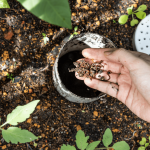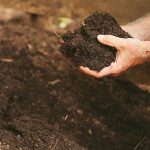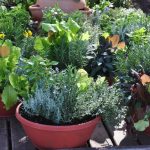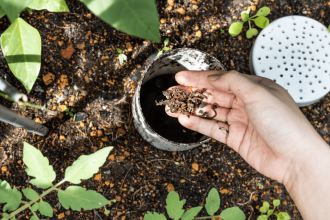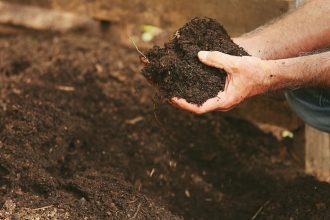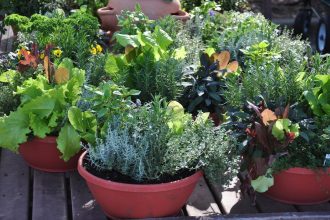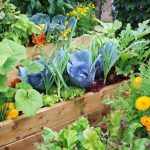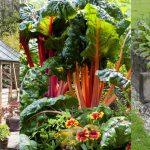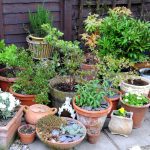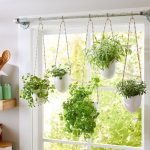As the sun rises over your luscious green garden, the aromas of freshly-picked tomatoes and earthy herbs fill the air. If you’ve ever dreamt of cultivating your own organic vegetable garden but don’t know where to start, fear not! In this article, we will provide you with a plethora of tips and tricks to help you kickstart your very own green haven. From seed selection to pest control, get ready to embark on a journey through the world of organic vegetable gardening.

Selecting the Right Vegetables for Your Organic Garden
When it comes to organic vegetable gardening, selecting the right vegetables is crucial for a successful harvest. Choosing the right vegetables will not only ensure a bountiful harvest but also help in maintaining the health of your garden ecosystem.
Here are some tips to help you choose the right vegetables for your organic garden:
- Consider the climate and soil in your area before selecting vegetables. Choose vegetables that are well-suited for your climate to ensure they thrive in your garden.
- Opt for heirloom or open-pollinated varieties of vegetables. These varieties are more resilient and better suited for organic gardening practices.
- Rotate your crops each season to prevent soil depletion and pest infestations. This will also help in maintaining the overall health of your garden.
| Vegetable | Climate | Soil Type |
|---|---|---|
| Tomatoes | Warm | Well-draining |
| Carrots | Cool | Sandy |
| Zucchini | Warm | Rich in organic matter |
Creating a Healthy Soil Environment for Your Plants
When it comes to organic vegetable gardening, one of the most important factors to consider is . By ensuring that your soil is nutrient-rich and well-balanced, you can help your vegetables thrive and produce a bountiful harvest. Here are some tips to help you create the perfect soil environment for your plants:
- Use compost: Adding compost to your soil is a great way to boost its nutrient content and improve its overall quality. Compost is rich in organic matter, which helps to feed your plants and promote healthy growth.
- Rotate your crops: Rotating your crops each season can help to prevent nutrient depletion and reduce the risk of pests and diseases. By planting different types of vegetables in different areas of your garden, you can maintain a healthy balance in your soil.
- Avoid synthetic fertilizers: Synthetic fertilizers may provide a quick boost to your plants, but they can also have negative long-term effects on your soil health. Instead, opt for natural fertilizers like compost, manure, or organic plant food.
| Vegetable | Recommended Soil pH |
|---|---|
| Tomatoes | 6.0-6.8 |
| Carrots | 5.8-7.0 |
| Lettuce | 6.0-7.0 |
By following these tips and paying attention to the health of your soil, you can create an ideal environment for your plants to thrive. With the right balance of nutrients, pH levels, and organic matter, your organic vegetable garden will flourish and provide you with a plentiful harvest of delicious, homegrown produce.
Implementing Natural Pest Control Methods
One effective way to protect your organic vegetable garden from pests is by . By using these methods, you can avoid the harmful effects of chemical pesticides on your crops and promote a healthier, more sustainable environment.
One natural pest control method is attracting beneficial insects to your garden. Ladybugs, lacewings, and praying mantises are just a few examples of insects that help control pest populations by feeding on them. You can attract these beneficial insects by planting flowers like marigolds, daisies, and sunflowers, which provide them with nectar and shelter.
Another effective natural pest control method is companion planting. This involves planting certain crops together that benefit each other in some way. For example, planting basil near tomatoes can help deter pests that commonly attack tomato plants. Additionally, planting garlic near broccoli can help repel aphids and other pests that can harm broccoli plants.
In addition to attracting beneficial insects and practicing companion planting, you can also use physical barriers like row covers to protect your crops from pests. These covers create a physical barrier between your plants and pests, preventing them from reaching your crops. By combining these natural pest control methods, you can effectively protect your organic vegetable garden and enjoy a bountiful harvest.
Harvesting and Storing Your Organic Vegetables
When it comes to , there are a few key tips to keep in mind to ensure that you preserve the freshness and flavor of your hard-earned produce.
One important tip is to harvest your vegetables at the peak of ripeness. This is when they are the most flavorful and nutrient-rich. Ensure you have the right tools such as sharp scissors or a knife to cut your vegetables properly, without damaging the plant. Avoid pulling on the vegetables as this can damage the plant and reduce future yields.
After harvesting, it’s essential to store your vegetables properly to maintain their freshness. Store root vegetables like carrots and beets in a cool, dark place with high humidity to prevent them from drying out. Leafy greens such as lettuce and spinach should be stored in the refrigerator in a perforated plastic bag to maintain their crispness.
By following these tips for , you can enjoy the flavors of your garden all season long and reduce waste.
In conclusion, organic vegetable gardening is not just about raising plants, but about cultivating a deeper connection to the earth and the food we eat. By following these tips, you can create a thriving garden that not only provides you with fresh and nutritious produce, but also contributes to a healthier planet. So roll up your sleeves, get your hands dirty, and let nature be your guide in this bountiful and rewarding journey of organic vegetable gardening. Happy planting!


